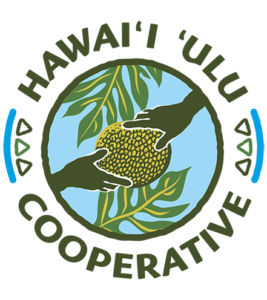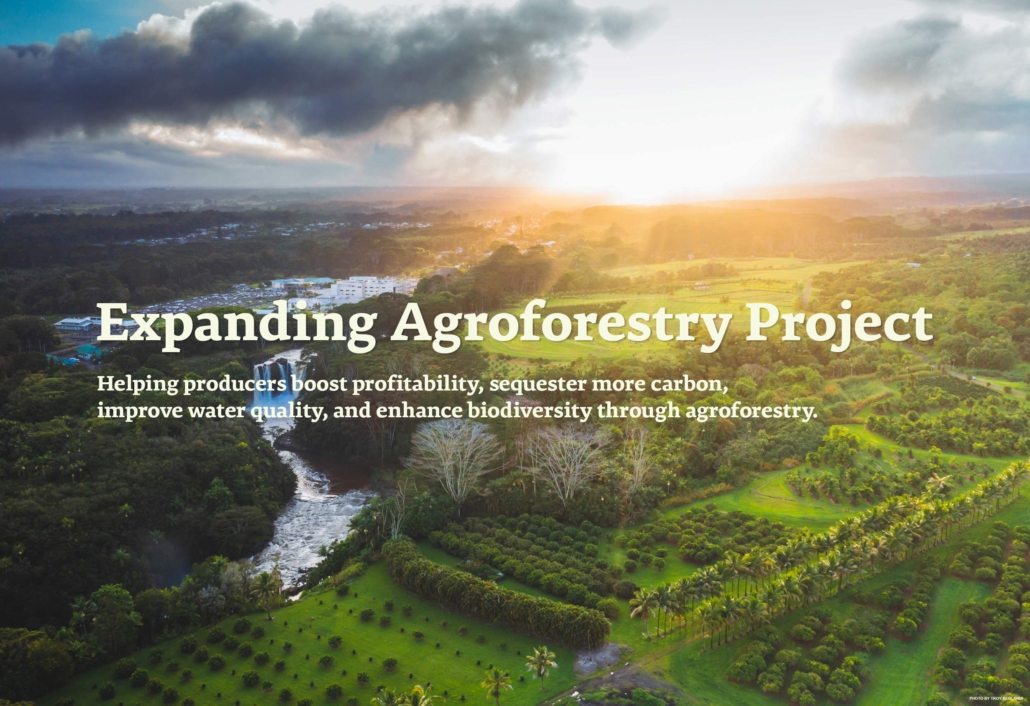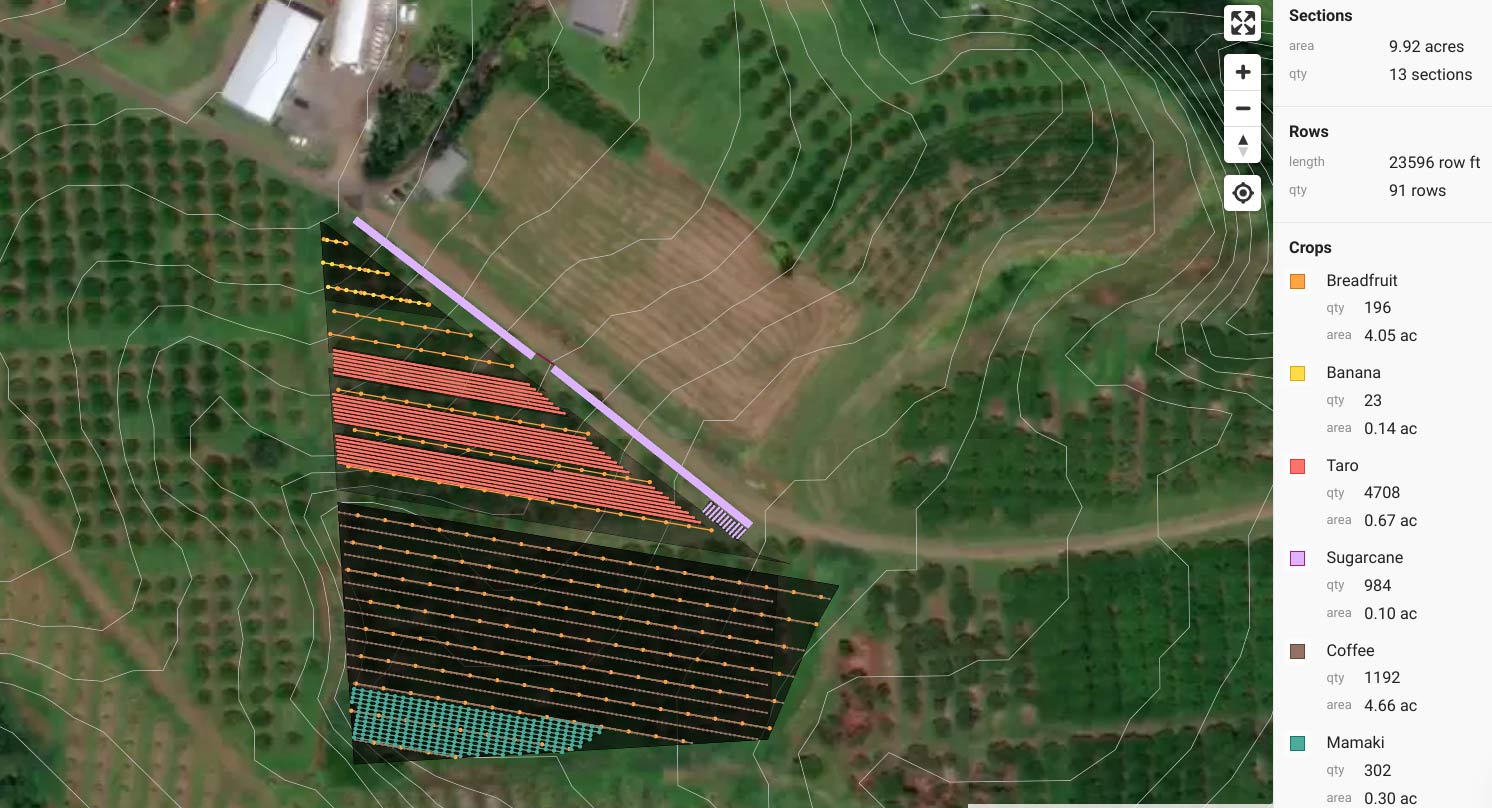*** URGET NOTICE – PROGRAM TERMINATED***
We regret to inform you that on April 14, 2025, TNC received notification from USDA-NRCS that it will be terminating TNC’s Partnership for Climate Smart Commodities – Expanding Agroforestry Project (EAP) funding. Here is USDA’s press release on the matter. Due to this grant termination, TNC and its EAP project partners must cease project-related activities and obligations.
We are disappointed with this decision, and this is certainly not the news we would like to be sharing with you today. We would like to express our deepest appreciation for your interest, time, and effort during this process. We will continue to update you should we receive any relevant information from USDA. Meanwhile, should you have any questions or concerns, please contact us at ExpandingAgroforestry@tnc.org.
Please know TNC remains committed to advancing our mission and supporting farmers and ranchers in adopting agroforestry practices across the United States.
Sincerely,
North America Agroforestry Program Team | The Nature Conservancy – North America Agriculture Program
Are You a Farmer or Landowner Looking to Practice Agroforestry?
We are excited to announce an unprecedented new funding opportunity for farmers across Hawaiʻi looking to begin or expand agroforestry operations! Unlike many conventional agriculture funding assistance programs, these incentive funds will be dispersed up-front before any installation activities occur, and technical assistance will also be provided to support selected applicants’ project planning and implementation.
The aim of this program is to catalyze expansion of agroforestry practices in commercial agriculture operations to help save farmers money and increase their income while benefiting the environment and mitigating climate change through tree planting.
Program Background & Details
The Nature Conservancy (TNC) and partners are launching this 5-year project to catalyze the agroforestry industry and facilitate the transition to more climate-friendly agriculture.
The Expanding Agroforestry Project is funded through the USDA’s Partnerships for Climate-Smart Commodities (CSC) initiative. In 2022, the USDA announced more than $3.1 billion in funding for 141 projects, including $60 million for this national agroforestry project. The overarching project goal is to add 30,000 new acres of agroforestry across 30 states while creating a network of demonstration sites. The project is also prioritizing a portion of funds to help producers from under-served populations.
TNC, which is responsible for grant administration, has selected the Hawaiʻi ʻUlu Co-op to be its lead partner managing projects in the Hawaiʻi region. There are five other regions on the Continental U.S. which each have their own lead partner helping to expand financing and develop markets for agroforestry commodities.
IS THIS PROGRAM FOR YOU?
Fill out the little intake form below and we’ll follow up to help direct you.
EXPANDING AGROFORESTRY TOWN HALL WEBINAR
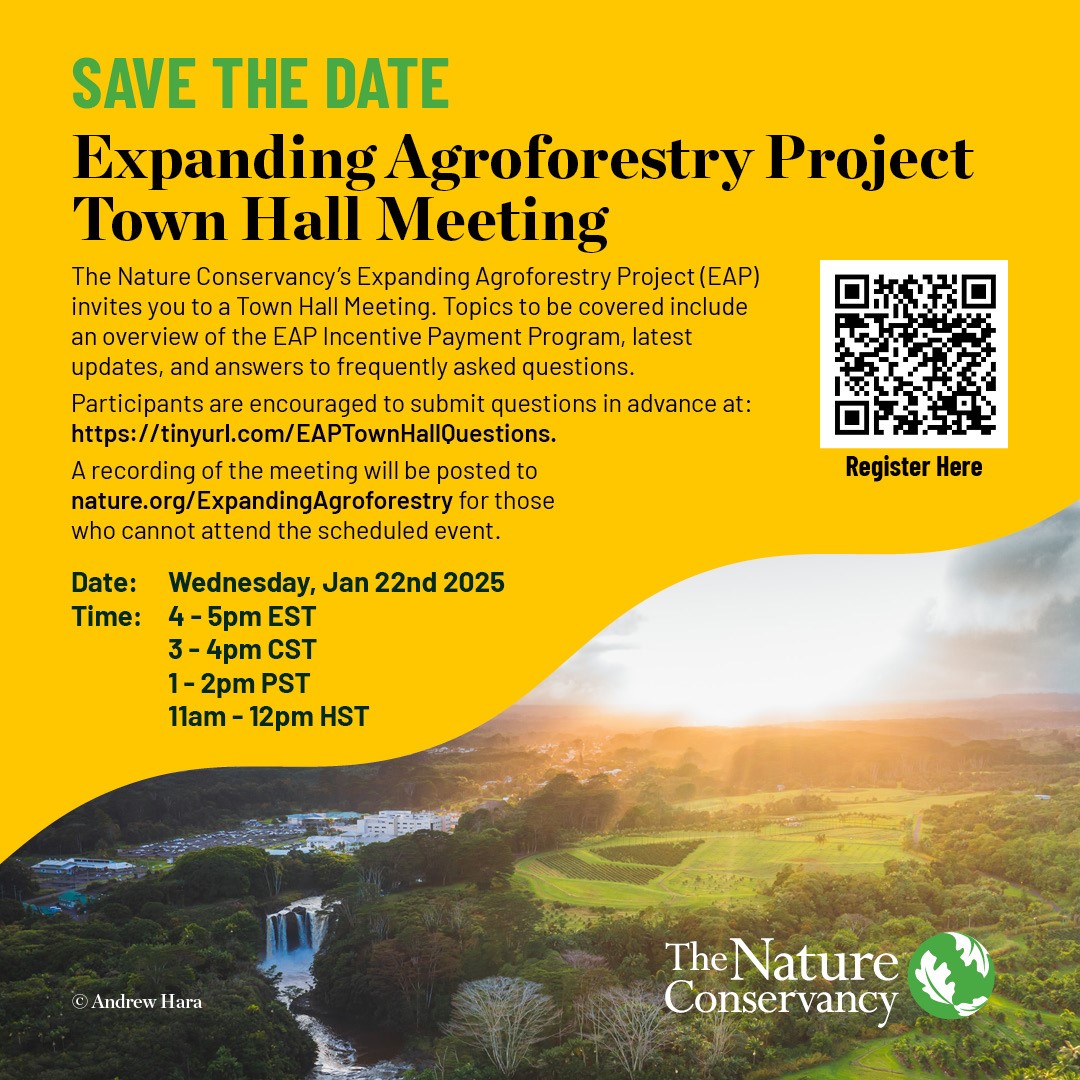
If you prefer information in a video format, program leads hosted an informational Webinar on Jan. 22, 2025. You can watch the recording on YouTube below.
Join our Agroforestry Mailing List
Application Information
- Current application cycle: Jan. 31st – April 18th, 2025 (sign up for our mailing list above to receive program updates!)
- Two enrollment cycles per year through 2028
- Minimum project size in Hawaiʻi is 3 acres and needs to show economic viability
- This program is intended to meaningfully engage and be accessible to under-served producers who are encouraged to apply
- When filling out the application, we recommend completing write-ups in a separate document saved to your computer to avoid loss of data due to page time-out
- If you require assistance with completing an application, please contact Chris at agroforestry@eatbreadfruit.com
Click here to read the Frequently Asked Questions (PDF)
PROGRAM OVERVIEW
- Agroforestry plan must utilize one or all of three practices including: Alley Cropping, Windbreaks, or Silvopasture (Multi-story Cropping / Food forests are not eligible)
- All selected applicants will receive hands-on technical assistance with design, planning, financial projections, and data analysis using the Overyield software, pictured above
- Projects selected will receive a flat-rate per tree and shrub planted up to a maximum amount per acre (See the infographic below for Incentive Rate breakdown)
- Funds will be dispersed in 3 installments: 75% at signing, 20% after planting, 5% at end of program
- Producers must establish trees to NRCS standards and complete installation according to their approved plan within 18 months
- Producers must contribute tree measurement data once after planting, and again at end of program
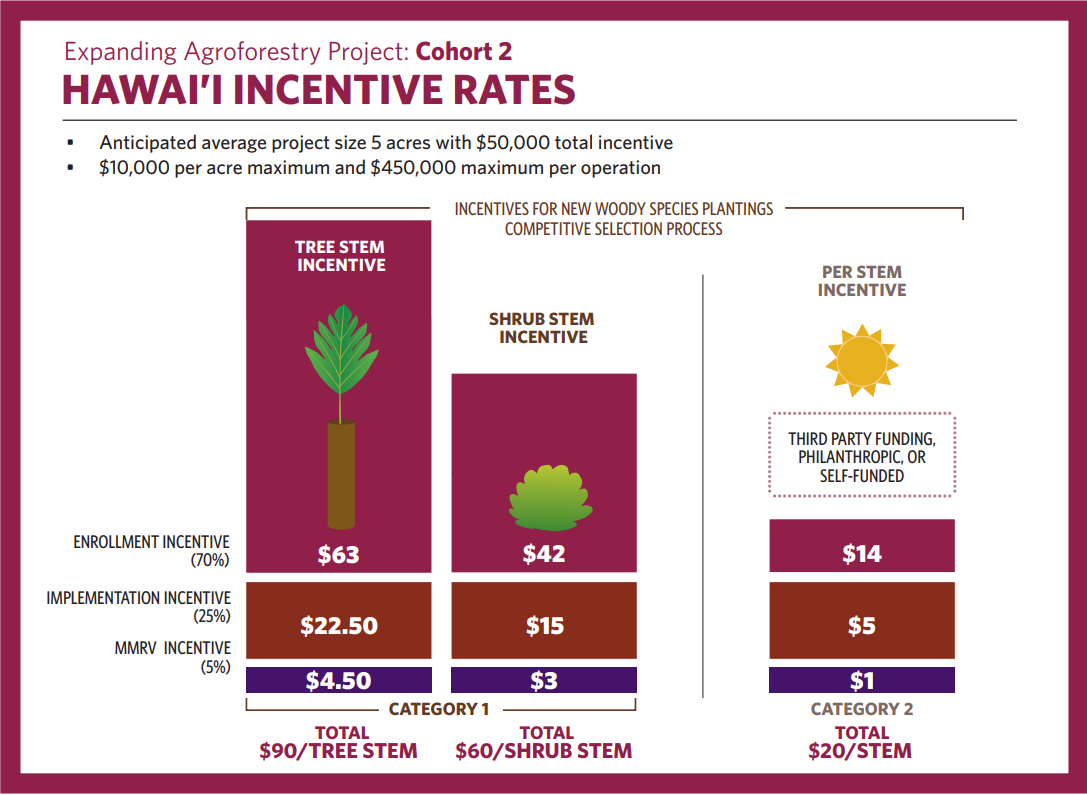
Visit Nature.org’s Expanding Agroforestry site for full details!
